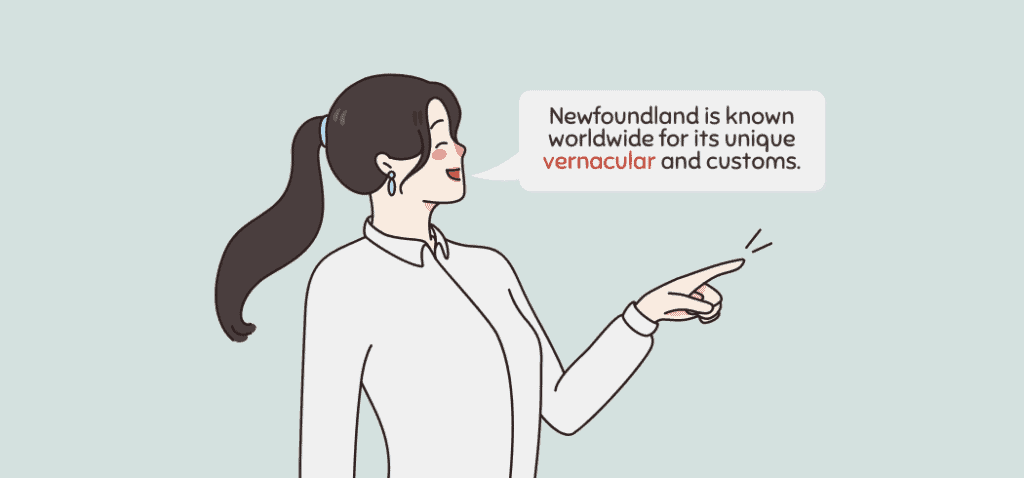English has such a rich tapestry woven with other languages. We’ve chopped certain vernaculars, borrowed certain words and expressions, and created a massive means of communication representing the vivid diversity of our tongues.
But what does vernacular mean? The term might be used in academic circles or tossed around at a cocktail party, but do we fully understand what it’s meant for? Let’s shed some light on this common term, shall we?
Vernacular Meaning Explained

At its heart, the noun vernacular means the language or dialect spoken by the people in a specific region or group. It’s the everyday speech style of a community, as opposed to formal or literary language.
The vernacular reflects a community’s culture, history, and identity and usually includes colloquialisms, weird idioms, and certain phrases unique to that group.
I can’t help but think of where I’m from, Newfoundland, Canada. We’re a beloved bunch worldwide but well-known for our unique vernacular, which is a mix of Irish, Scottish and British English. I know, just try and imagine that! We have some terms and expressions that other countries couldn’t even begin to understand because it’s a very visual vocabulary.
Vernacular vs. Vocabulary
The term vernacular differs slightly from vocabulary because it pertains to the language or dialect of a specific group within the language. It encompasses not only words and phrases but also their usage and grammar.
In contrast, vocabulary simply refers to the collection of words a person knows or uses in a particular book, subject, etc.
As a professional writer and published author, I have a wide vocabulary, aka I know a lot of words. As a Newfoundlander, I also have a unique vernacular that I use around other Newfoundlanders. Make sense?
Vernacular vs. Verbiage
Similarly, vernacular contrasts with verbiage. Verbiage is how something is expressed in words, often with a negative connotation when it implies excessive or unnecessary wordiness. My editor once told me my first draft had too much verbiage, and I had to cut down on a lot of fluffy words and unnecessary descriptions.
So, while vernacular points to the use of language in a particular group, verbiage focuses more on the way something is expressed or written.
The Etymology of the Word Vernacular
The word vernacular is rooted in the Latin vernaculus, which means domestic or indigenous. It was first used in English during the 17th century to describe languages that evolved naturally among people, as opposed to languages used for official or formal purposes.
It’s like how Americans say cotton candy, but British people say candy floss, and Australians say fairy floss. They’re all the same at the root, but this shows how vernacular changes a word in certain regions.
Synonyms for Vernacular
Should you seek to diversify your linguistic palette, consider these synonyms for vernacular:
- Dialect
- Lingua franca
- Colloquial language
- Slang
- Idiom
- Jargon
- Lingo
Using Vernacular in a Sentence

And now, let’s put vernacular to work in some sentence examples so you can see just how to use it.
- Her novel brilliantly captures the unique vernacular of the Appalachian community.
- I look at my father and see how the vernacular of internet culture can be challenging for older generations to understand.
- As an anthropologist, he spent years learning the vernacular of the local tribe he stayed with.
- Newfoundland is known worldwide for its unique vernacular and customs.
It’s All About Culture
With its roots in local culture and identity, the vernacular offers a fascinating reflection of the diversity of human communication and everyday language. I love how one word can spread across the globe and retain its meaning but change its appearance and pronunciation.
Check out some other articles we covered:
